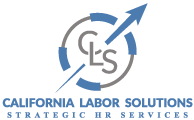Even though the economy has begun to recover, unemployment rates in California are above 11%, a quite important number if we compare it with September 2019 where the percentage was 3.5%.
California’s unemployment insurance (UI) program provides weekly unemployment insurance payments to workers who lose their job through no fault of their own.
California’s UI program is financed by employers who pay unemployment taxes on up to $7,000 in wages paid to each worker. The actual tax rate varies for each employer, depending in part on the amount of UI benefits paid to former employees. The UI tax works similar to any other insurance premium, and an employer may earn a lower tax rate when fewer claims are made on the employer’s account by former employees.
Covered Employers
Employers that employ one or more employees and pay wages in excess of $100 in a calendar quarter are covered by California’s UI law. Wages are compensation for services performed, including, but not limited to, cash payments, commissions, bonuses, and the reasonable cash value of nonmonetary payments for services, such as meals and lodging.
Exemptions
California’s UI law exempts:
– Certain payments from the definition of wages (for example, accident disability payments received under workers’ compensation).
– Certain services from the definition of employment (for example, family employment).
Covered Employees
An individual who files for UI benefits must meet the following specific eligibility requirements:
– Enough wages were received during the base period to establish a claim.
– Be totally or partially unemployed through no fault of his or her own.
– Physically able to and available for work.
– Ready and willing to immediately accept work.
– Actively looking for work each week benefits are claimed.
– Approved for training before training benefits can be paid.
Reporting and Paying the Tax
California’s UI program is funded through payroll taxes paid by employers. California employers are required to electronically submit employment tax returns, wage reports, and payroll tax deposits to the Employment Development Department (EDD) and pay the UI tax on a prescribed schedule.
Our HR Consulting Services include: HR Outsourcing, Regulatory Compliance Solutions, and Supplemental HR Support (for in-house teams).

